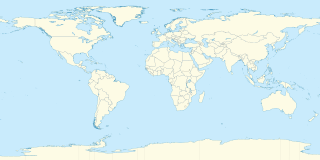
A transparency, also known variously as a viewfoil, foil, or viewgraph, is a thin sheet of transparent flexible material, typically cellulose acetate, onto which figures can be drawn. These are then placed on an overhead projector for display to an audience. Many companies and small organizations use a system of projectors and transparencies in meetings and other groupings of people, though this system is being largely replaced by video projectors and interactive whiteboards.
In economics, a market is transparent if much is known by many about: What products and services or capital assets are available, market depth, what price, and where. Transparency is important since it is one of the theoretical conditions required for a free market to be efficient. Price transparency can, however, lead to higher prices. For example, if it makes sellers reluctant to give steep discounts to certain buyers, or if it facilitates collusion, and price volatility is another concern. A high degree of market transparency can result in disintermediation due to the buyer's increased knowledge of supply pricing.
Transparency, as used in science, engineering, business, the humanities and in other social contexts, is operating in such a way that it is easy for others to see what actions are performed. Transparency implies openness, communication, and accountability.
Corporate transparency describes the extent to which a corporation's actions are observable by outsiders. This is a consequence of regulation, local norms, and the set of information, privacy, and business policies concerning corporate decision-making and operations openness to employees, stakeholders, shareholders and the general public. From the perspective of outsiders, transparency can be defined simply as the perceived quality of intentionally shared information from the corporation.

The World Trade Organization's Ministerial Conference of 1996 was held in Singapore on December 9 - December 13, 1996. The inaugural meeting for the organisation since its formation. The event was hosted by the government of Singapore at the Singapore International Convention and Exhibition Centre in Suntec City.
Media transparency, sometimes also referred to as media opacity, is a concept that ponders on how and why information subsidies are being produced, distributed and handled by media professionals, including journalists, editors, public relations practitioners, public affairs specialists, and spokespeople. In short, media transparency reflects the relationship between journalists and news sources.

The Corruption Perceptions Index (CPI) is an index published annually by Transparency International since 1995 which ranks countries "by their perceived levels of public sector corruption, as determined by expert assessments and opinion surveys." The CPI generally defines corruption as "the misuse of public power for private benefit".
In general, corruption is a form of dishonesty or criminal activity undertaken by a person or organization entrusted with a position of authority, often to acquire illicit benefit. Corruption may include many activities including bribery and embezzlement, though it may also involve practices that are legal in many countries. Political corruption occurs when an office-holder or other governmental employee acts in an official capacity for personal gain. Corruption is most commonplace in kleptocracies, oligarchies, narco-states and mafia states.

Peter Eigen founded the Advisory Council of Transparency International (TI), a non-governmental organization promoting transparency and accountability in international development since 1993. Headquartered in Berlin, TI supports National Chapters in more than 90 countries.

The United Nations Office for Project Services (UNOPS) is an operational arm of the United Nations, dedicated to implementing projects for the United Nations System, international financial institutions, governments and other partners around the world. The organization's global headquarters is located on the UN City campus in Copenhagen, Denmark.
Global Voices is an international community of writers, bloggers and digital activists that aim to translate and report on what is being said in citizen media worldwide. It is a non-profit project started at the Berkman Center for Internet and Society at Harvard Law School that grew out of an international bloggers' meeting held in December 2004. The organization was founded by Ethan Zuckerman and Rebecca MacKinnon. In 2008, it became an independent non-profit incorporated in Amsterdam, Netherlands.
Open government is the governing doctrine which holds that citizens have the right to access the documents and proceedings of the government to allow for effective public oversight. In its broadest construction it opposes reason of state and other considerations, which have tended to legitimize extensive state secrecy. The origins of open government arguments can be dated to the time of the European Enlightenment: to debates about the proper construction of a then nascent democratic society.
The following is a list of international rankings of Greece.
The Association for a More Just Society is a Honduran non-governmental organization working on human rights and government transparency in Honduras, where it serves as Transparency International's local chapter. Its sister organization in the United States it known as the Association for a More Just Society (AJS).

Corruption in Albania is a problem. According to Global Corruption Barometer 2013, 66% of respondents indicated that level of corruption has increased in Albania.

The Nederlandse Publieke Omroep or Dutch Foundation for Public Broadcasting is a Dutch public broadcasting organization that administers the public broadcasting service in the Netherlands. The NPO is also the owner of the radio-spectrum license and public DVB-T and DAB+ frequencies.
ISO 37001 Anti-bribery management systems -- Requirements with guidance for use identifies a management standard to help organizations in the fight against corruption, by establishing a culture of integrity, transparency and compliance. The anti-bribery management system can be a stand-alone system or integrated into an already implemented management system such as the Quality Management System ISO 9001. An organization can choose to implement the anti-bribery management system in conjunction with or as part of other systems, such as those relating to quality, environment and safety.






